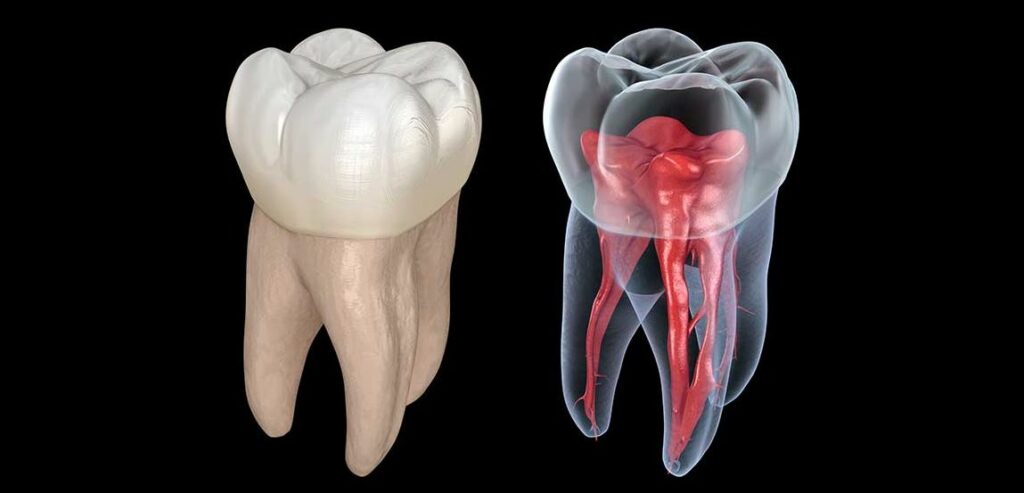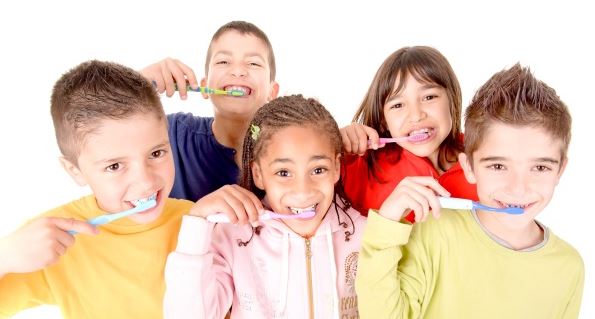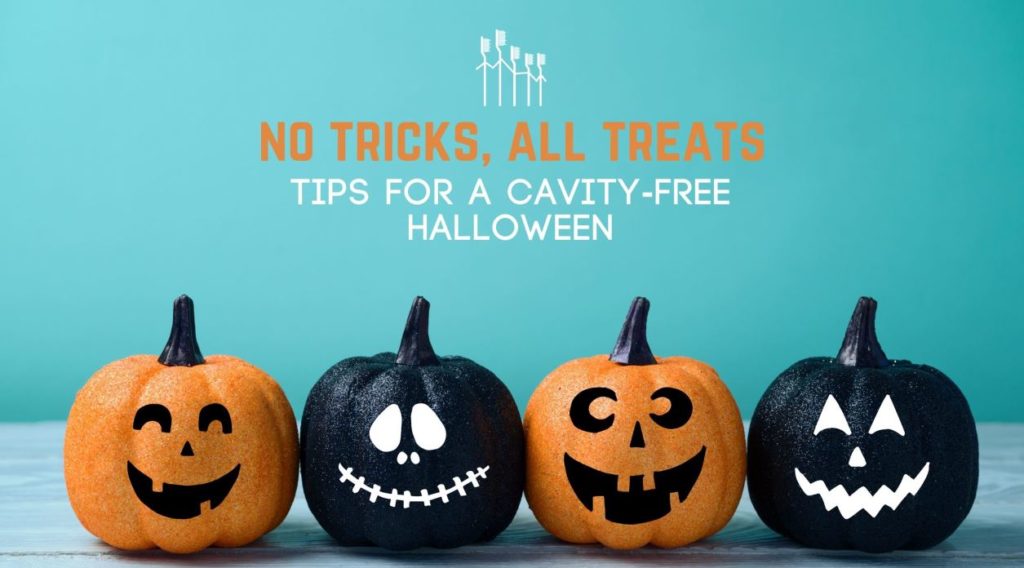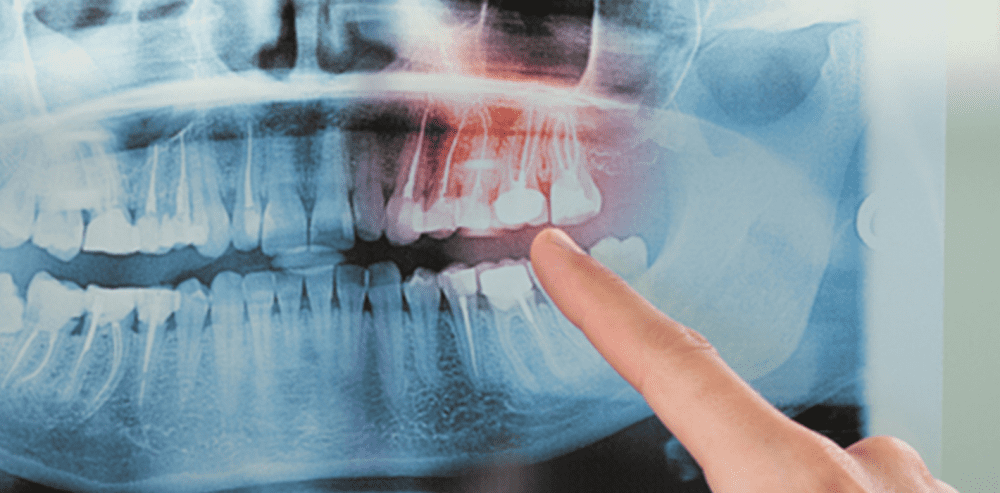
Root canal therapy, also known as endodontic therapy or simply a root canal, is used to treat infected pulp. Pulp is a soft tissue residing inside teeth and is composed of nerves, blood vessels, and joining tissues.
Many people are afraid of receiving root canal therapy. Although the process is longer and more invasive than a regular dental visit and check-up, it is far better than suffering the pain and discomfort of the diseased pulp. Root Canal Therapy involves removing the infected parts of the tooth and protecting it from future contaminations. Continue reading to understand more about root canals, the conditions when it is required and why it’s important to contact Dr. Skrobanek at GPS Dental to have it treated quickly!
What Prompts the Need for Root Canal Therapy?
Cracked, chipped, or fractured teeth are the most susceptible to infection. So, at the first sign of a damaged tooth, it is critical to repair it immediately. Unfortunately, if left untreated, food debris and bacteria can seep into the tooth, causing inner tissues or pulp to become decayed and infected.
As the tooth deteriorates, you will experience pain. You may also notice symptoms such as:
- severe sensitivity to varying temperatures
- pain when chewing
- swelling of the gums
- tenderness around the area
- discoloration of the tooth
Should any of these signs arise, you are encouraged to seek immediate help. Letting the infection progress can lead to the loss of your tooth.
If you’re needing root canal therapy, there’s no reason to worry and every reason to move forward. Root canals are a dental procedure that eliminate bacteria from infected tooth roots and prevent reinfection because the infected pulp is removed and the surrounding area is carefully cleaned, filled, and sealed. Every year, millions of people undergo root canal therapy to treat diseased or damaged teeth. A root canal will relieve any oral pain you’ve been experiencing in that tooth and can make it healthy once again.
Related Articles:
- Dental Treatments: Top 10 Most Common Dental Procedures
- What is a Root Canal?
Have You Been Experiencing These Symptoms?
In addition, these symptoms may indicate that a root canal procedure is needed:
- Persistent dental pain
- A chipped or cracked tooth
- Pimples on gums
- Darkening of gums
- Decay
- Tooth Mobility or feeling loose
To get your oral health back to normal, and to eliminate any pain you may be experiencing, a root canal is often the next, and best, step to take. If left untreated, there’s no doubt you’ll lose the infected tooth and experience more dental problems and more pain. You can even spread the infection to the rest of your body, if left untreated.
Related Article:
How a Root Canal Procedure Can Help You
Root canal therapy can provide relief to someone experiencing dental pain, especially when the pain is associated with infection or damage to the pulp of a tooth. Here’s how a root canal can help:
- Removal of Infected or Inflamed Pulp: Dental pain often occurs when the pulp (the innermost part of the tooth containing nerves and blood vessels) becomes infected or inflamed. A root canal involves removing the infected or damaged pulp, which eliminates the source of pain.
- Pain Relief: Once the infected pulp is removed, the pain caused by the inflammation and infection is alleviated. The procedure is performed under local anesthesia, ensuring that the patient is comfortable and does not feel pain during the treatment.
- Preservation of the Natural Tooth: A root canal is a treatment aimed at saving a natural tooth rather than extracting it. Preserving the natural tooth is beneficial for maintaining proper oral function, aesthetics, and avoiding the need for more extensive dental procedures like tooth replacement.
- Prevention of Spread of Infection: By removing the infected pulp, a root canal prevents the spread of infection to other areas of the mouth and the rest of the body. This helps in preventing more serious health issues and complications.
- Elimination of Swelling and Discomfort: Dental infections can cause swelling and discomfort in the affected area. By addressing the infection through a root canal, swelling is reduced, and the patient experiences relief from discomfort and tenderness.
- Resolving Sensitivity to Hot or Cold: Infected or inflamed pulp can make the tooth sensitive to hot or cold temperatures. After a root canal, the tooth is no longer responsive to temperature changes, leading to increased comfort during eating and drinking.
- Improvement in Overall Oral Health: By treating the infection and preserving the natural tooth, a root canal contributes to better overall oral health. It eliminates the need for tooth extraction, preventing potential complications that can arise from missing teeth.
- Durable and Long-Lasting Solution: After a root canal, the treated tooth is typically restored with a dental crown or filling, providing durability and long-term functionality. With proper oral hygiene and regular dental care, the treated tooth can last for many years.
- Elimination of Toothache and Discomfort: The primary goal of a root canal is to eliminate your toothache and discomfort associated with dental pain. By addressing the underlying issue, patients experience significant relief and can resume normal oral function.
It’s important to note that while a root canal is a common and effective procedure, not all dental pain requires this treatment. If you are experiencing dental pain, it’s crucial to consult with Dr. Skrobanek for a proper diagnosis and treatment recommendation. Early intervention can prevent the progression of dental issues and alleviate discomfort.
More about Root Canals from WebMD
Related Article: Restorative Dentistry: Porcelain Crowns Can Restore Teeth
If you’re suffering from tooth pain, we can help!
We hope we’ve given you information to answer some of your questions about getting root canal therapy; however, if you have additional questions, we’d love to answer them! Please contact our office at 210-633-3477. If you’re in pain, from a toothache, please let us know when you call us, so we can schedule your appointment as a dental emergency and get you scheduled for treatment immediately!
Dr. Gary P. Skrobanek’s experienced and friendly team at GPS Dental offers affordable dental care for all ages in San Antonio, TX area. Our Brooks City Base dentist office is conveniently located and offers early morning appointment times Monday through Friday to meet your needs. At GPS Dental, we promote dental health awareness to our patients and provide most dental services, from family and general dentistry to dental implants, sleep apnea, TMJ / TMD Treatment, cosmetic dentistry and much more. We accept most dental insurance plans and offer affordable financial solutions for any budget. Call us at 210-633-3477 to make an appointment.















